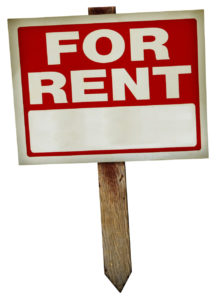2022 Real Estate Forcast

Photo Credt Bas van den Wijngaard
2021 has been a wild ride in the Real Estate world, and we are now in the final month of 2021, and our minds are thinking about what will 2022 bring in real estate. Many housing experts have used the phrase the housing market will normalize. What does that mean? Does that mean prices will take a nosedive? Does it mean buyers and renters will have the upper hand for once? Will inventory show a surplus of options?
Homes priced right will still see a frenzy, but the buying frenzy we experienced in the spring of 2021 will be less. Realtor is forecasting the market will slow down, but prices will remain high and interest rates will creep up. Inventory will also remain tight.
Bottom Line Buyers will not see much relief in finding their dream home. The seller will still be king or queen, but the frenzy will be less intense. The years of home prices driving up super fast is less likely in 2022. The pace of price growth will be notably slower. Interest rates will make it less likely for buyers to bid as aggressively as they did in the past. Buyers’ frustration of not having enough choices will continue.
Why Home Prices will Remain High
Realtor.com economists predict the number of homes for sale, which is hovering around record lows, will tick up only 0.3%. That’s partly due to builders having a tough time ramping up construction as they contend with shortages in workers and materials, compounded by the global supply chain backups. (Single-family housing starts, which is when builders start construction, is expected to rise only 5% next year.
 The shortage of homes is not anything new it’s more than a decade in the making. The lack of homes will keep home prices high. Sales will also continue to climb, hitting a 16-year high as they go up by 6.6%, Realtor.com economists anticipate. That’s partly because technology has sped up the homebuying process. Due to higher demand than supply buyers are jumping on whatever comes up for sale in record time.
The shortage of homes is not anything new it’s more than a decade in the making. The lack of homes will keep home prices high. Sales will also continue to climb, hitting a 16-year high as they go up by 6.6%, Realtor.com economists anticipate. That’s partly because technology has sped up the homebuying process. Due to higher demand than supply buyers are jumping on whatever comes up for sale in record time.
Homes well-priced and in good shape are will continue going under contract quickly. The speed supports increased housing turnover as more abodes change hands as folks move into their first homes or relocate, trade up into larger residences, and downsize.
Suburbs will remain popular
 The popularity of the suburbs is also likely to endure. Suburbs emerged as a place where buyers during the pandemic could score more square footage and bigger yards for less money than in the bigger cities.
The popularity of the suburbs is also likely to endure. Suburbs emerged as a place where buyers during the pandemic could score more square footage and bigger yards for less money than in the bigger cities.
For years, we heard about the dying suburbs because millennials didn’t want to live there, but as they age, guess where they’re heading? The burbs. This housing trend has been accelerated by the needs of aging millennials, often with families, trying to grapple head-on with the realities of doing more than ever before from home.
Remote work will also likely be a factor. More workers will be telecommuting or going into the office only a few times a week. They may not have to contend with grueling commutes five days a week. Since buyers are not commuting as much they are more comfortable moving farther outside of the cities where they can get larger abodes with room for a home office at an attractive price. That’s likely to keep prices high in desirable communities.
It won’t be easy for first-time home buyers. If they have the flexibility to work remotely or have a hybrid model of working from home and commuting in they might be able to find a home not as popular but still desirable. It might not be in a major city, but still has great dining and other major attractions.
Inflation and Interest Rate Impact
A lot of people are expecting housing prices and sales to peak and then decline. Instead, I think there’s enough momentum from these younger buyers who want to get into the housing market to keep sales moving forward.
However, as the economy has improved and inflation has risen, making everything from a dozen eggs to a gallon of gas more expensive, rates are also expected to go up. That could help curb the runaway price growth that has been seen in the spring. Buyers can stretch their budgets only so far.
Realtor.com anticipates mortgage rates will rise to an average of 3.3%, hitting around 3.6% by the end of 2022. That’s up from a low of 2.65% in the first week of January for 30-year fixed-rate loans, according to Freddie Mac data.
All of these factors will add up and make it more expensive for buyers to buy a home. The difference of roughly a percentage point to 3.6% would result in about $157 extra tacked on to the monthly payment of a median-priced home of $380,000. That can total more than $56,500 over the life of a 30-year loan. (This assumes the buyers put down 20% and does not include property taxes, insurance costs, or homeowners association fees.)
It’s also likely to result in homebuying becoming even more expensive. With home prices continuing to tick up a little and rates increasing, those purchasing a home with a mortgage will wind up shelling out more each month.
Rents in 2022
 You might be thinking okay I will rent vs buy. Rents will continue to go up and historically speaking when we have experienced inflation in the past renters have paid more for housing than homeowners. Tenants are not expected to get any relief. Rental prices will continue to soar. Prices have surged and will continue to rise by 7.1% in 2022.
You might be thinking okay I will rent vs buy. Rents will continue to go up and historically speaking when we have experienced inflation in the past renters have paid more for housing than homeowners. Tenants are not expected to get any relief. Rental prices will continue to soar. Prices have surged and will continue to rise by 7.1% in 2022.
At the beginning of the pandemic, as home sale prices spiraled, rents in many of the big cities dropped precipitously. Many tenants moved to larger, nicer apartments with more amenities at deeply discounted rents. This year tenants saw steep increases even in smaller, more traditionally affordable cities and suburbs. The culprit behind the price hikes: There simply aren’t enough homes to go around—for rent or sale. Homebuyers who keep losing bidding wars or can’t afford high homes prices will be stuck renting. Plus, there are plenty of folks who moved in with family and roommates or split up with their partners during the pandemic who are looking for their own rentals. Landlords will continue to try to make up for lost rents during the pandemic. Rents are expected to continue to grow.
2022 Recap
So 2022 if a buyer thinks it will be a year where you get some relief on purchase price don’t bank on it. Expect you will have fewer bidding wars but prices will remain high and buyers will have less wiggle room to bid up on the home of their dreams. Sellers will still need to be reasonable when listing their home for sale, but they will be smiling more than the buyer. Locking in your mortgage rate is going to be critical to saving. Landlords will experience a market where there is more demand than inventory, but they should still be sensitive to the upfront cost that a renter must pay to secure that home. Renters will see rents rise and they might be spending more than a third of the salary on where they are going to live.
Conclusion and Gameplan
If I would offer renters any advice try to buy a home then rent. When you buy a home your monthly payment doesn’t change year to year and homeowners tend to be in better financial shape to weather through times of inflation. We don’t know how long inflation will last, but it could last a while. My only question is what will be your housing plans for 2022? If you need help let’s talk.



Leave a Reply